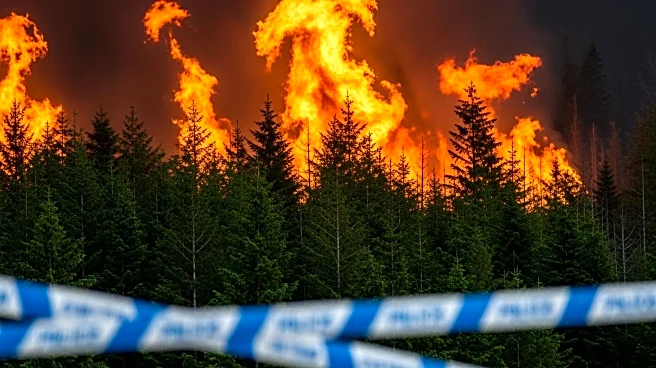What's Happening?
A recent report titled 'State of Wildfires 2024-25' highlights the increasing intensity and scale of wildfires globally, attributing the trend to human-driven climate change. The study, led by Douglas Kelley from the U.K. Center for Ecology & Hydrology,
utilized satellite data and land-surface models to analyze the interaction between climate, vegetation, and fire. The findings indicate that severe fire seasons have become significantly more likely due to global warming, with wildfires burning an area larger than India from March 2024 to February 2025. Regions like Bolivia, Canada, and Brazil experienced unprecedented carbon dioxide emissions due to these fires, contributing to a feedback loop that exacerbates global warming.
Why It's Important?
The intensification of wildfires poses significant threats to human life, ecosystems, and economies. In 2024 and 2025, wildfires resulted in over 200 fatalities worldwide, including 30 in Los Angeles, and caused substantial economic damage, such as $140 billion in Southern California alone. The fires also led to severe air quality issues, with particulate pollution reaching dangerous levels. These events underscore the urgent need for effective climate policies and fire management strategies to mitigate the impact of climate change and protect vulnerable regions.
What's Next?
Future versions of the 'State of Wildfires' report will increasingly rely on advanced satellite technology to monitor fire conditions and inform policy decisions. The research team emphasizes the importance of exploring local fire management practices to identify effective strategies and improve resilience against extreme fire events. Policymakers are encouraged to consider climate finance and nature-based solutions to address the growing threat of wildfires.
Beyond the Headlines
The report highlights the ethical and ecological dimensions of wildfire management, stressing the need for comprehensive strategies that consider the long-term impacts on communities and ecosystems. The findings call for a reevaluation of land use practices and increased investment in sustainable fire prevention measures.















